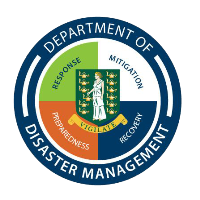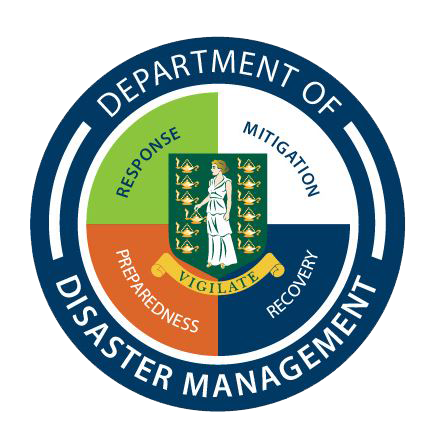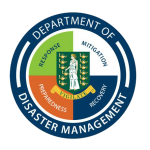Thursday, October 01 – The Virgin Islands
continue to experience drought conditions with a significant reduction in rainfall
recorded throughout the Territory.
As predicted
by the Caribbean Regional Climate Centre, mixed conditions are being
experienced in the eastern Caribbean while the rest of the Caribbean ranges
from severely dry in some islands to extremely wet in others. Drought conditions are severely affecting
parts of Puerto Rico with 20 percent of the island experiencing extreme drought
conditions causing water rationing by authorities. The drought conditions in Puerto Rico are affecting
residents, farmers as well as tourism while islands like Dominica are seeing
some of the wettest months on record.
Rainfall
statistics accumulated by the DDM for the period January to September reveal a
total of only 7.25 inches of rainfall from the Paraquita Bay weather station
and 10.26 inches for The Valley, Virgin Gorda station. Comparing the same period in 2014, rainfall
totals were at 20.81 inches for Paraquita Bay and 19.99 inches for The Valley,
Virgin Gorda.
The drought
condition is exacerbated by limited rainfall due to a harsh El Niño which has
been affecting the region since the first quarter of the year. The situation is being further affected by
the presence of an abnormal amount of dust and dry air over the southern
Atlantic which is hampering any tropical development.
The Caribbean
Agro-Metrological Initiative (CAMI) has stated that the El Niño is now
classified as strong with the possibility of further strengthening and lasting
until February to March 2016. This
translates into below normal rainfall for the majority of the Caribbean and a
continuation of the current drought conditions.
With school
back in full session, Health Disaster Coordinator, Dr. Ronald Georges is
reminding parents with young children and persons caring for the elderly to
ensure that they are protected from the direct heat and that they are always
hydrated.
Dr. Georges
said, “The main concerns we have in the health sector at this time are dehydration,
increase in respiratory conditions and heat stroke especially among children
and persons working outdoors. Although
not many cases have been reported it is important that persons practice
preventative measures. School administrators should ensure that children,
especially those playing outdoors are given water breaks to refresh themselves.”
Dr. Georges
also warned that any sporadic periods of rainfall has the potential for quick
increases in mosquito breeding possibly resulting in dengue and Chikungunya
cases.
He said, “Residents
are being urged to continue to practice good hygiene and to keep their
surrounding free of standing water especially during the brief periods of
rainfall that we have been experiencing during the past few weeks.”
Another concern
arising throughout the community and particularly among pet owners is the
increase in ticks in dogs. Populations
of the Rhipicephalus sanguineus (brown dog tick) increase dramatically with
warmer weather and droughts.
Chief
Veterinarian, Dr. Michael Montrose explained, “You will see sudden increases in
tick numbers in or around households with dogs.
Our dogs are more outdoors oriented and pick up more ticks in the yard so
the common anti-tick medications may not be adequately formulated for the tropics
especially in the warmer months.”
Dr Montrose is
encouraging dog owners to bathe their dogs with anti-tick solutions adequate
for the tropics. Residents are
encouraged to consult their private veterinarian or call the Veterinary
Division at 468 6123.
Agro
meteorologist with the Caribbean Institute for Meteorology and Hydrology Mr.
Adrian Trotman stated that the conditions are expected to worsen as El Niño
intensifies into the last quarter of the year. He added that although some
countries are experiencing periods of rainfall, this relief is predicted to be
temporary and that the real concern for rainfall shortages will come late in
the year.
With drought
warnings in effect for some neighbouring islands, residents of the BVI are encouraged
to implement management plans that conserve water. Farmers are also encouraged to consider
mulching as a way to reduce water loss due to evaporation.





